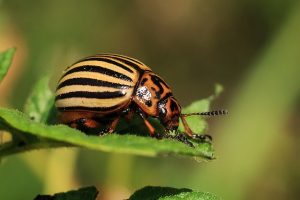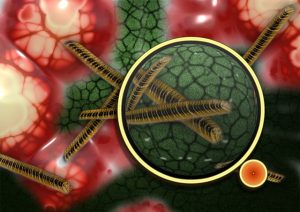“The main advantage of Goniozus legneri is its autochthonous nature since it is present in the North of Patagonia, in various crops such as pear, apple, and walnut and is harmless for humans,” he said. “Also, it can be found in the Nogales areas of La Rioja and Catamarca and Chile and Uruguay,” he added.
In the wild, the wasp is found in a low population density and parasitizes up to 20% of the larvae. Therefore, “it is necessary to increase the number of individuals in the fruit forests, through artificial breeding and a series of flood releases,” analyzed Cichon.
During the research, the benefits of the MIBIA strategy were compared with the release of these wasps, with another one of integrated pest management (IPM) in a demonstrative pear culture. “In both cases, the technique of sexual confusion was used as a basic tool for the control of Carpocapsa ( Cydia pomonella, L. ),” he said. “The results obtained showed that both strategies were successful for the control of the pest and, in the future, their environmental impact will be evaluated,” he said.
“In both cases, the technique of sexual confusion was used as a basic tool for the control of Carpocapsa ( Cydia pomonella, L. ),” he said. “The results obtained showed that both strategies were successful for the control of the pest and, in the future, their environmental impact will be evaluated,” he said.
To Future
In 11 years of research, the team integrated by Liliana Cichon, Silvina Garrido and Jonatan Lago also devised a method of artificial breeding, to obtain a large number of wasps to be released in flooding and periodic in the field, and cause a depressant effect on pests such as Carpocapsa.
The first field tests were conducted in January and February 2016, in an organic production establishment of apple trees in the Middle Valley of Río Negro. There, in an area of 16 hectares, 64 thousand wasps were released. The same method is being tested on a walnut grove in that region.
According to Cichon, “the doses and frequency of release depend on the number of pests to control, their population densities, the cultivar and the health program that is implemented in the establishment.”
